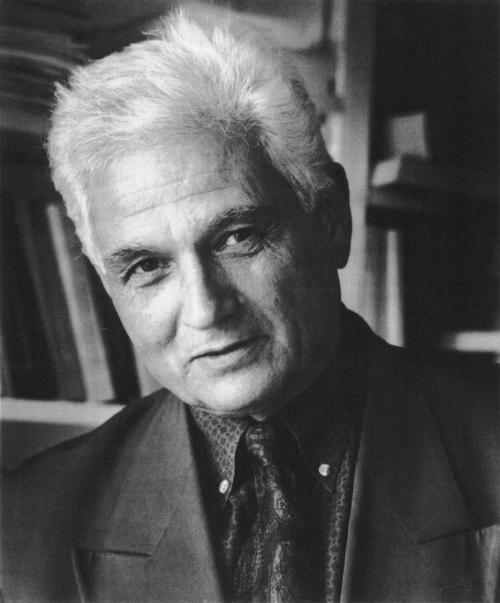Jacques Derrida (1930-2004)
| Jacques Derrida | |
 Afbeelding afkomstig van Department of Religious Studies Afbeelding afkomstig van Department of Religious Studies
| |
| Externe links | |
| Geo | |
Terug naar Filosofie
Beschrijving
Friedrich Nietzsche is zijn grootte voorbeeld.
| Bronnen, noten en/of referenties: |
| Jacques Derrida | |||||||||||||||||||||
 Afbeelding afkomstig van Department of Religious Studies Afbeelding afkomstig van Department of Religious Studies
| |||||||||||||||||||||
| Externe links | |||||||||||||||||||||
| Geo | |||||||||||||||||||||
| |||||||||||||||||||||
Terug naar Filosofie
Literatuur
1981 - Dissemination (English)
1972 - Marges de la philosophie (Français)]
Literatuur over
De twintigste eeuw in veertien filosofische boeken (Nederlands)
Media
2002 - ![]() Outtake from the movie "Derrida"
Outtake from the movie "Derrida"
2002 - ![]() Defining deconstruction (Français ondertiteling English)
Defining deconstruction (Français ondertiteling English)
2002 - ![]() On The Problematics Of Deconstruction (Français ondertiteling English)
On The Problematics Of Deconstruction (Français ondertiteling English)
Begrippen
DeconstructieDe westerse metafysica kan blootleggen door het 'deconstrueren' van de logica ervan.
DichotomieDe opdeling in twee niet-overlappende structuren of begrippen.
DifféranceUitstel in de zin dat een woord zijn betekenis krijgt door de woorden die erop volgen en 'verschil' in de zin dat de betekenis van een woord tevens bepaald wordt door zijn onderscheid met andere woorden.
DisseminatieDe verspreiding/uitzaaiing van kennis, informatie, innovatie, ziektekiemen, enz.
FenomenologieGaat uit van de directe en intuïtieve ervaring van fenomenen (oftewel verschijnselen), en hieruit de essentiële eigenschappen van ervaringen en de essentie van wat men ervaart probeert af te leiden.
IterabiliteitVerandering door herhaling.
LogocentrismIt refers to the tradition of Western science and philosophy that regards words and language as a fundamental expression of an external reality
Phonocentrismis the belief that sounds and speech are inherently superior to, or more primary than, written language or sign language
Postmodernismehet in twijfel trekken van lang gekoesterde begrippen als waarheid en - romantische - authenticiteit. Op filosofisch vlak houden zij die tot de postmodernen worden gerekend zich, meer nog dan hun voorgangers, bezig met taalkritiek.
Structuralismeer zijn niet direct waarneembare of onbewuste structuren die ten grondslag liggen aan (alle) sociale verschijnselen.
Friedrich Nietzsche is zijn grootte voorbeeld.
| Bronnen, noten en/of referenties: |